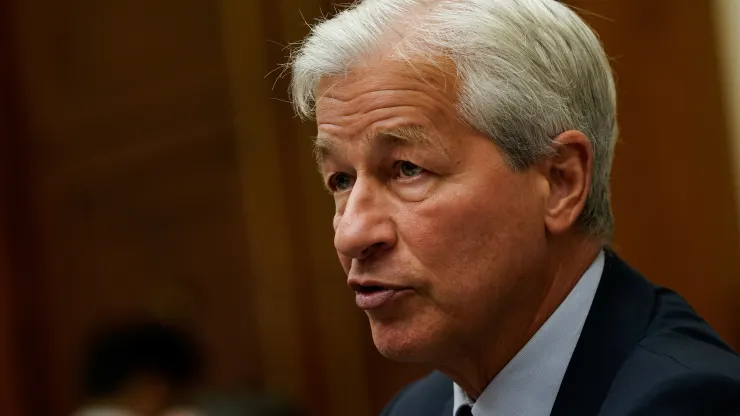JPMorgan Chase CEO Jamie Dimon said Thursday that markets will be gripped by panic as the U.S. approaches a possible default on its sovereign debt.
An actual default would be “potentially catastrophic” for the country, Dimon told Bloomberg in a televised interview. Dimon said he expects that worst-case scenario will be avoided, however, because lawmakers will be forced to respond to growing concern.
“The closer you get to it, you will have panic” in the form of stock market volatility and upheaval in Treasurys, he said.
Dimon joined a host of business figures and administration officials making dire predictions about the consequences of failing to raise or suspend the U.S. debt limit and allowing the world’s largest economy to default on its bonds. Treasury Secretary Janet Yellen has said the idea that the country could default should be “unthinkable” and would lead to economic disaster.
“If it gets to that panic point, people have to react, we’ve seen that before,” Dimon said.
But “it’s a really bad idea, because panic becomes something that is not good,” he added. “It could affect other markets around the world.”
War room
JPMorgan, the biggest U.S. bank with about $3.7 trillion in assets, has been preparing for the risk of an American default, Dimon said.
Such an event would ripple through the financial world, impacting “contracts, collateral, clearing houses, and affect clients definitely around the world,” he said.
The bank’s so-called war room has been gathering once weekly, a rate that will shift to daily meetings around May 21 and then three meetings daily after that, he said.
He exhorted politicians from both major U.S. parties to compromise and avoid a ruinous outcome.
“Please negotiate a deal,” Dimon said.
Other banks
In the wide-ranging interview, Dimon said he speaks daily to regional bank executives amid concerns sparked by the Silicon Valley Bank collapse in March. Last week, JPMorgan emerged as the winner in the government-brokered auction for First Republic.
Regional banks are “quite strong” and will have good financial results, but managers are worried because of the bank runs that have taken down three firms, he said.
“I think we have to assume there’ll be a little bit more” to the regional banking crisis, he said.

